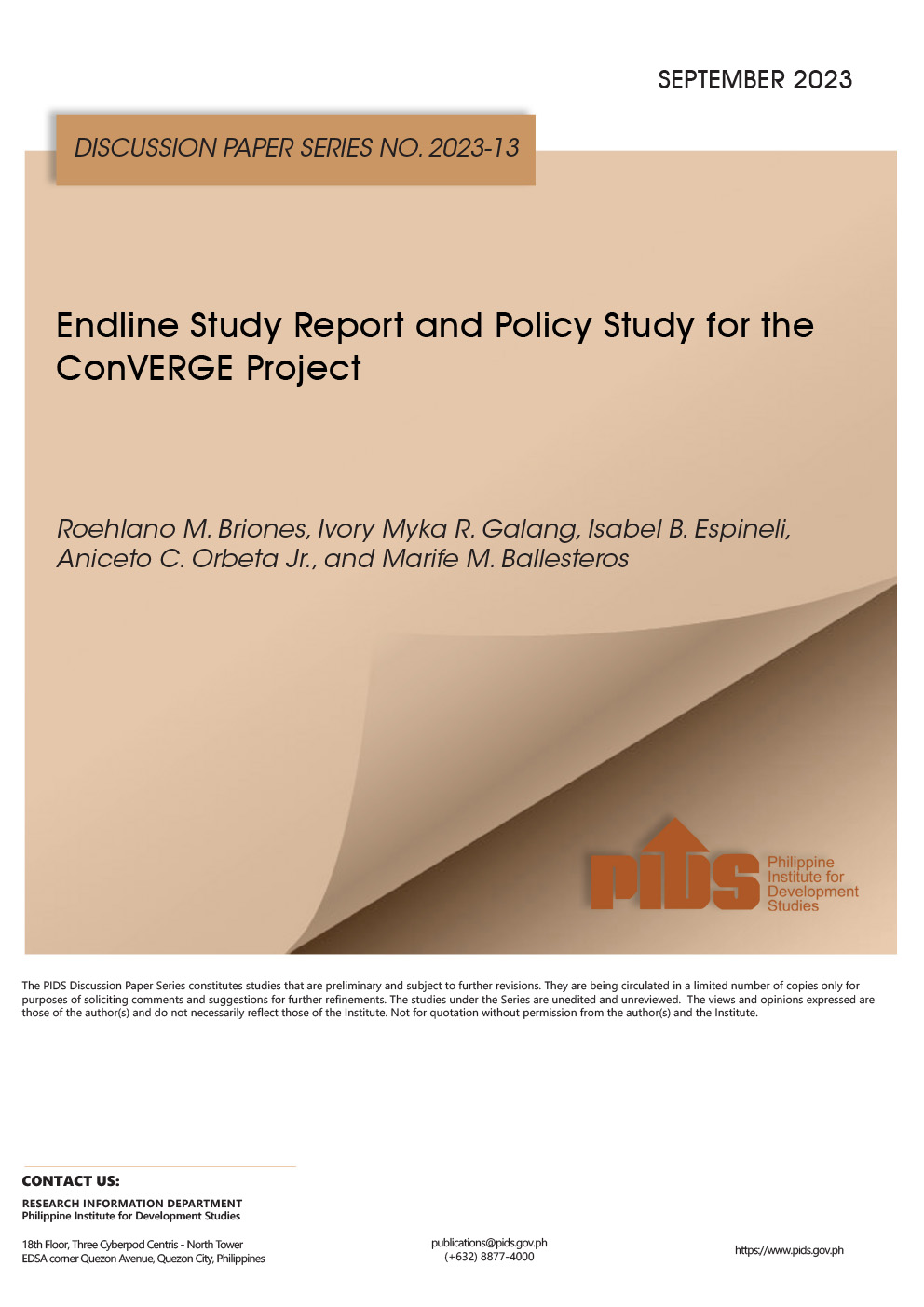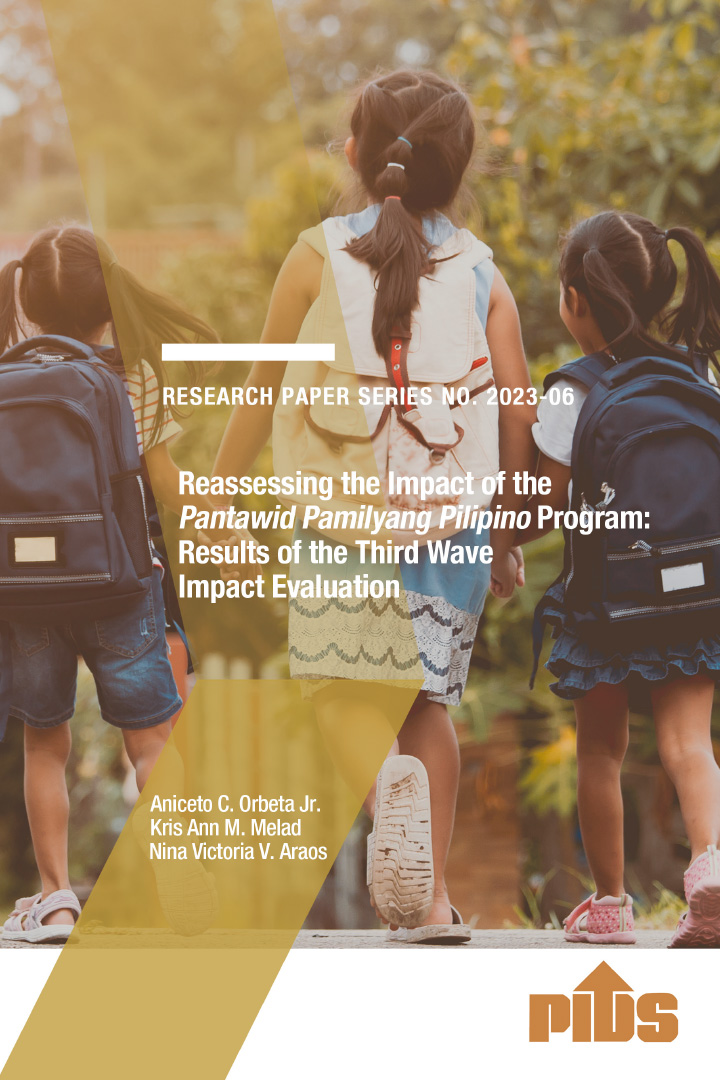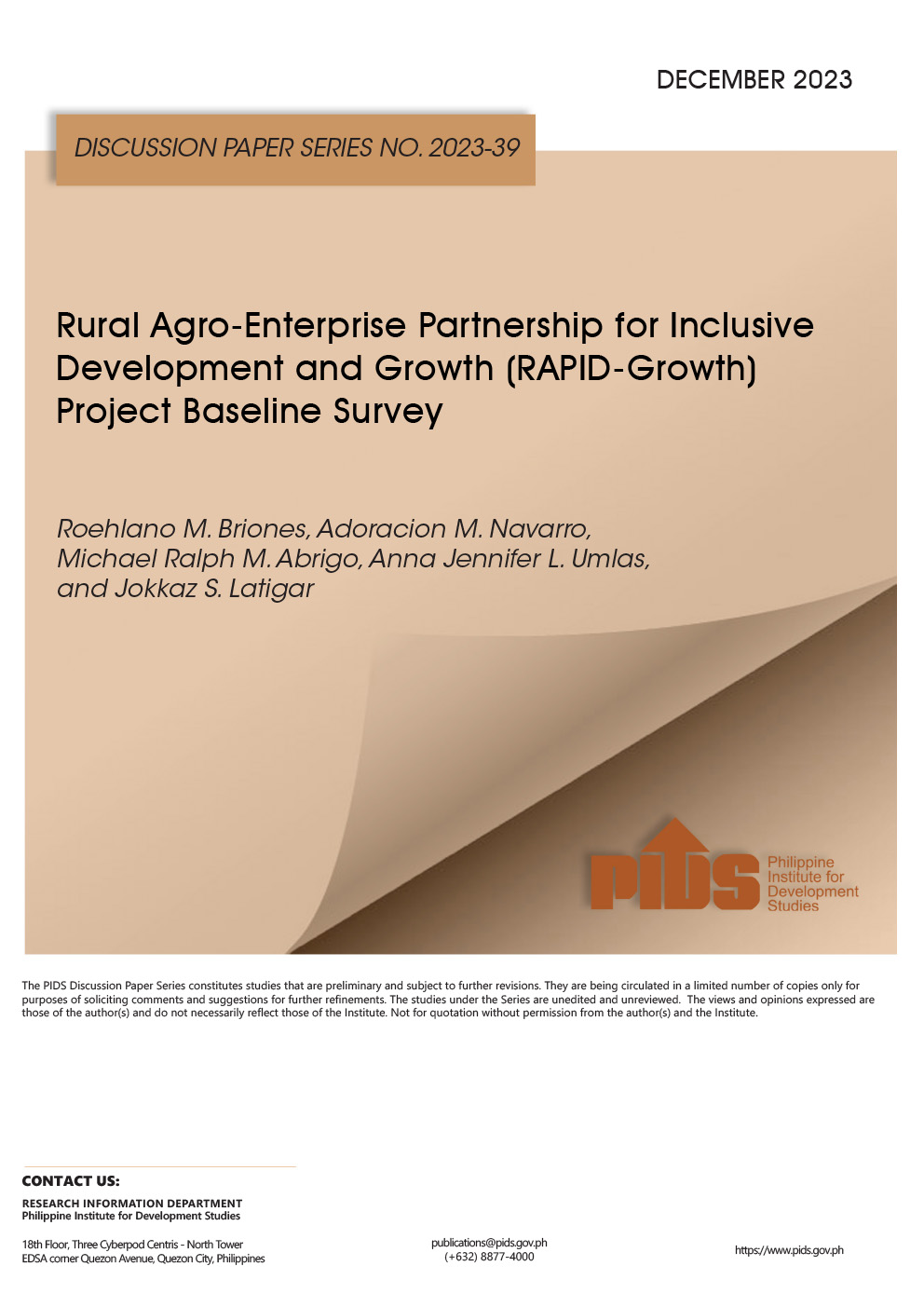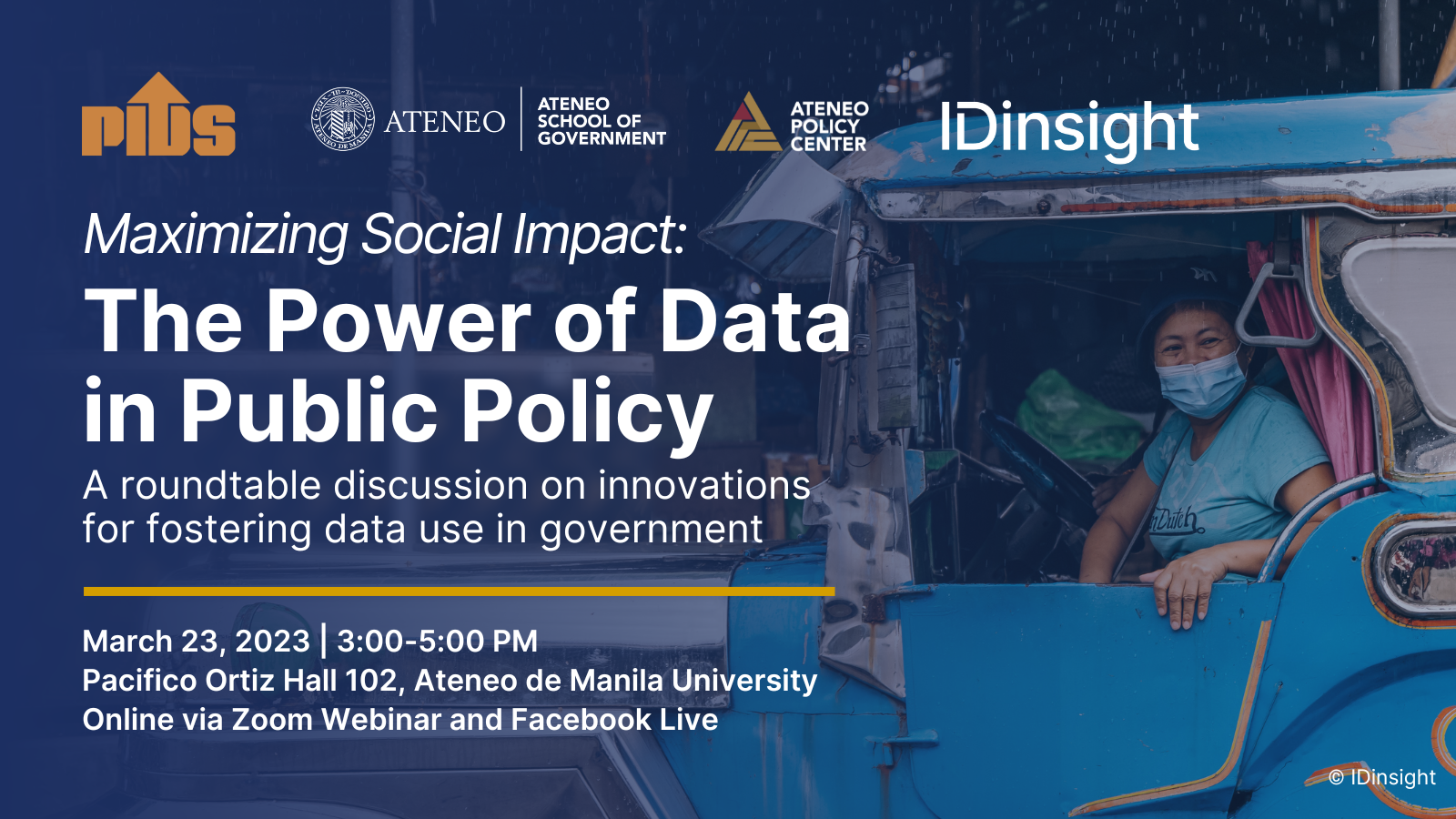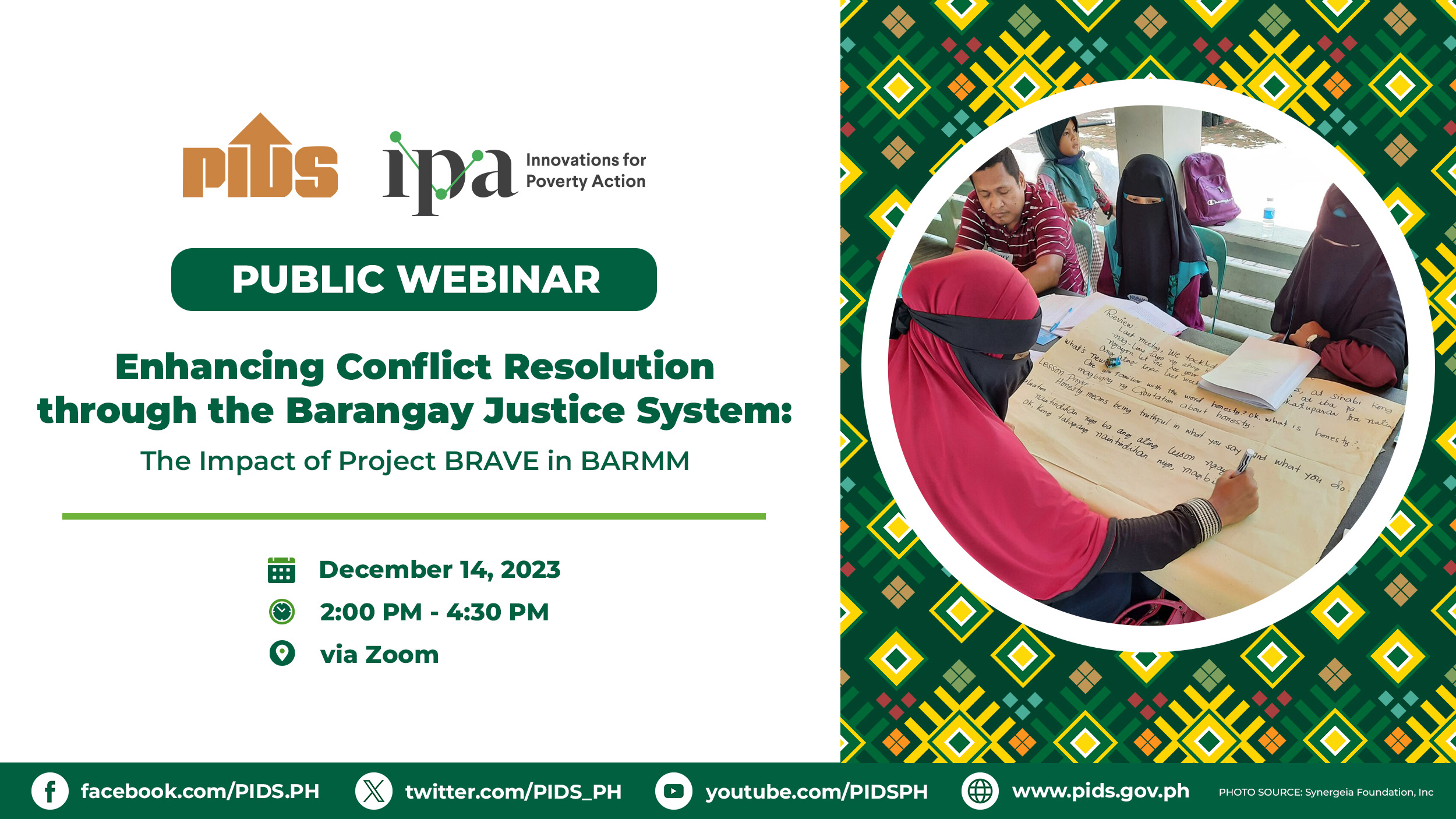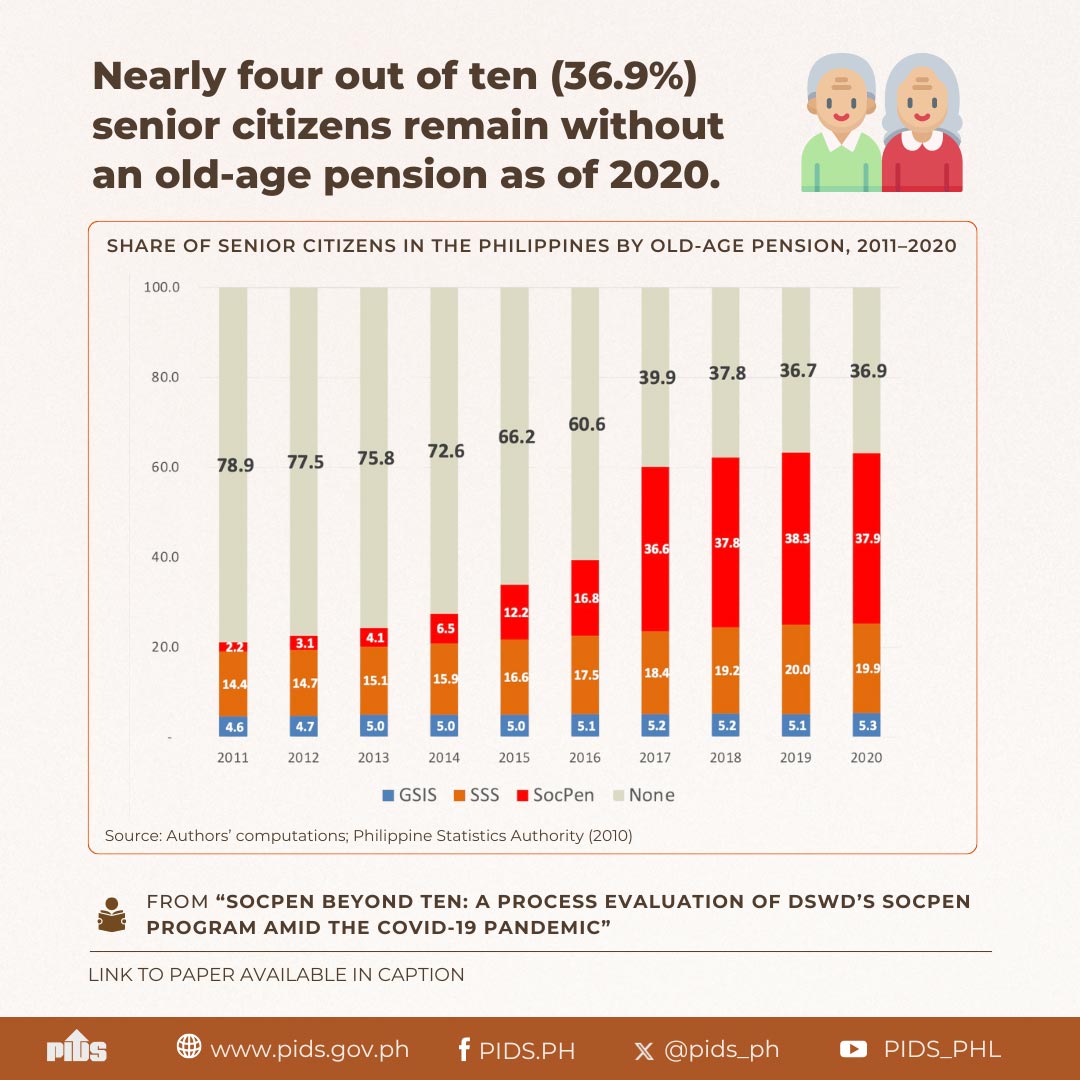Two top officials of the Aquino administration on Wednesday (Sept. 3, 2014) backed efforts to integrate evaluation practices into development programs, saying these measures ensure the efficient and prudent use of public and donor funds.
Socioeconomic Planning Secretary Arsenio Balisacan said evaluation practices have "provided effective feedback of lessons learned for the improvement of program and project designs of future development projects."
"This year we are taking it a step further by including in the national budget a significant amount to conduct process assessments and impact evaluations of more government programs," Balisacan said in his opening remarks at the start of the international conference dubbed "Making Impact Evaluation Matter: Better Evidence for Effective Policies and Programs" being held at the Asian Development Bank (ADB) headquarters.
"With impact evaluation, the objectives of government transparency and accountability become a reality and do not remain mere slogans," said Balisacan, the director-general of the National Economic and Development Authority and chairman of the board of trustees of the Philippine Institute for Development Studies (PIDS).
At the conference's opening plenary session, Social Welfare and Development Secretary Corazon Juliano Soliman said impact evaluation could not be done away with as it helps achieve the intended goals of development projects as well as in the allocation of resources. "Impact evaluation tells us if we are transforming the lives of families, children, and communities," she added.
The second wave of impact evaluation of the government's conditional cash transfer program, known as the Pantawid Pamilyang Pilipino Program or 4Ps, "negates" criticism that the program encourages dependency, Soliman bared. Moreover, program beneficiaries have a better outlook on the future, she said.
Soliman urged impact evaluation practitioners to address a communication gap, saying that the dissemination of findings of evaluation studies should appeal to non-specialist audiences by using less jargon and graphs.
Paul Gertler, economics professor at the University of California, Berkeley, said the experience of Indonesia on family planning programs was instructive, as it was found that 70 percent of the reduction in fertility was in fact due to women's education.
Impact evaluations are useful in three ways: as input to funding decisions, to inform program design, and as a means of influencing ideas, he said. "What you do in the Philippines will influence the rest of the world if it's documented," Gertler said in the opening plenary.
More than 400 delegates are in Manila for the first-ever large-scale international conference on impact evaluation in Asia, co-organized by the ADB, the US nonprofit International Initiative for Impact Evaluation or 3ie, and PIDS. The conference will run until Sept. 5.
PIDS, the state policy think tank, has been tapped by the Aquino administration to lead a PHP 300-million research project that will conduct process assessments and impact evaluations of key government programs.
PIDS is spearheading the observance of the 12th Development Policy Research Month this September with a series of fora and other activities in support of evidence-based policymaking. The theme for this year's celebration is "Addressing the Jobs Challenge Toward Inclusive Growth."
Socioeconomic Planning Secretary Arsenio Balisacan said evaluation practices have "provided effective feedback of lessons learned for the improvement of program and project designs of future development projects."
"This year we are taking it a step further by including in the national budget a significant amount to conduct process assessments and impact evaluations of more government programs," Balisacan said in his opening remarks at the start of the international conference dubbed "Making Impact Evaluation Matter: Better Evidence for Effective Policies and Programs" being held at the Asian Development Bank (ADB) headquarters.
"With impact evaluation, the objectives of government transparency and accountability become a reality and do not remain mere slogans," said Balisacan, the director-general of the National Economic and Development Authority and chairman of the board of trustees of the Philippine Institute for Development Studies (PIDS).
At the conference's opening plenary session, Social Welfare and Development Secretary Corazon Juliano Soliman said impact evaluation could not be done away with as it helps achieve the intended goals of development projects as well as in the allocation of resources. "Impact evaluation tells us if we are transforming the lives of families, children, and communities," she added.
The second wave of impact evaluation of the government's conditional cash transfer program, known as the Pantawid Pamilyang Pilipino Program or 4Ps, "negates" criticism that the program encourages dependency, Soliman bared. Moreover, program beneficiaries have a better outlook on the future, she said.
Soliman urged impact evaluation practitioners to address a communication gap, saying that the dissemination of findings of evaluation studies should appeal to non-specialist audiences by using less jargon and graphs.
Paul Gertler, economics professor at the University of California, Berkeley, said the experience of Indonesia on family planning programs was instructive, as it was found that 70 percent of the reduction in fertility was in fact due to women's education.
Impact evaluations are useful in three ways: as input to funding decisions, to inform program design, and as a means of influencing ideas, he said. "What you do in the Philippines will influence the rest of the world if it's documented," Gertler said in the opening plenary.
More than 400 delegates are in Manila for the first-ever large-scale international conference on impact evaluation in Asia, co-organized by the ADB, the US nonprofit International Initiative for Impact Evaluation or 3ie, and PIDS. The conference will run until Sept. 5.
PIDS, the state policy think tank, has been tapped by the Aquino administration to lead a PHP 300-million research project that will conduct process assessments and impact evaluations of key government programs.
PIDS is spearheading the observance of the 12th Development Policy Research Month this September with a series of fora and other activities in support of evidence-based policymaking. The theme for this year's celebration is "Addressing the Jobs Challenge Toward Inclusive Growth."

